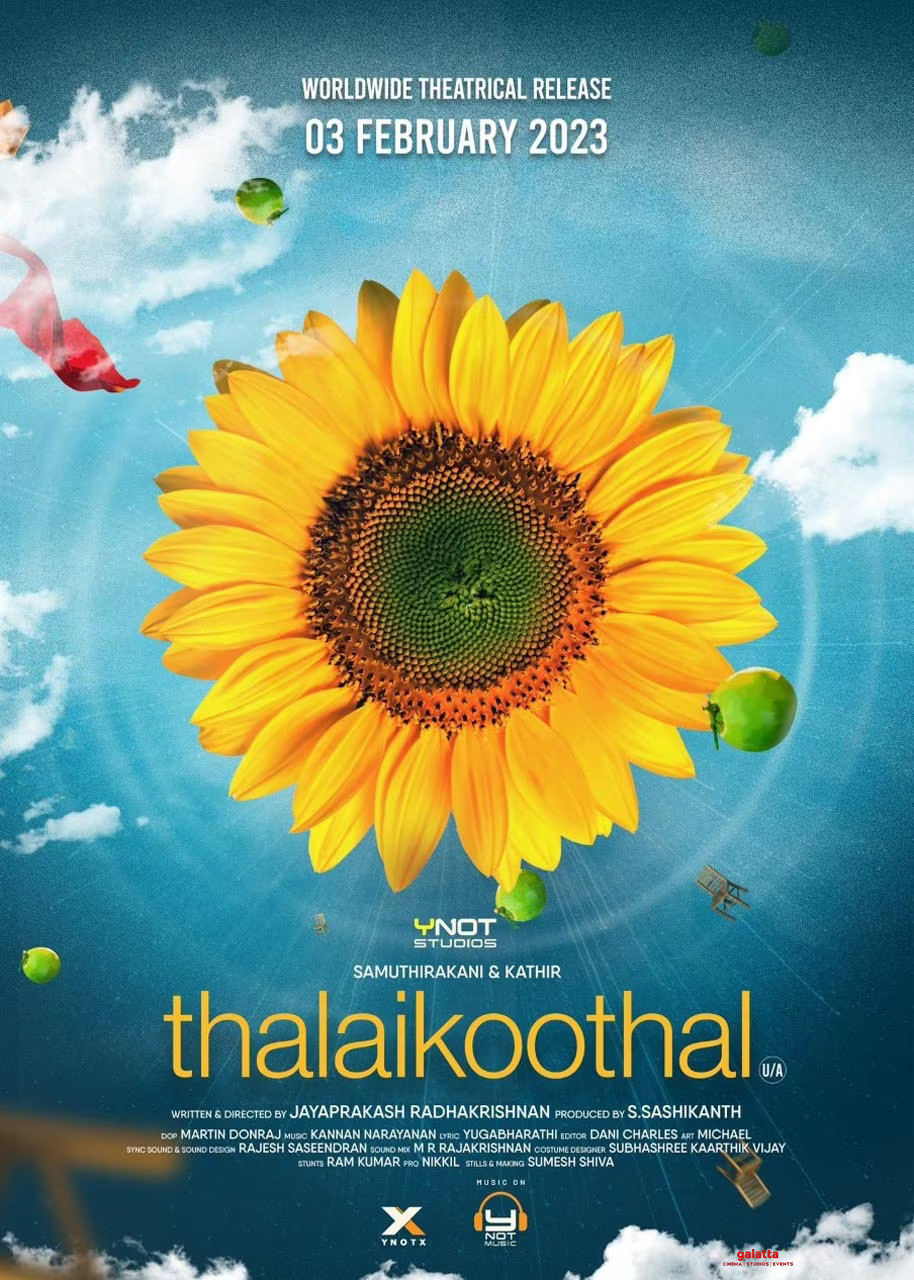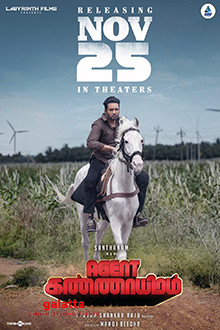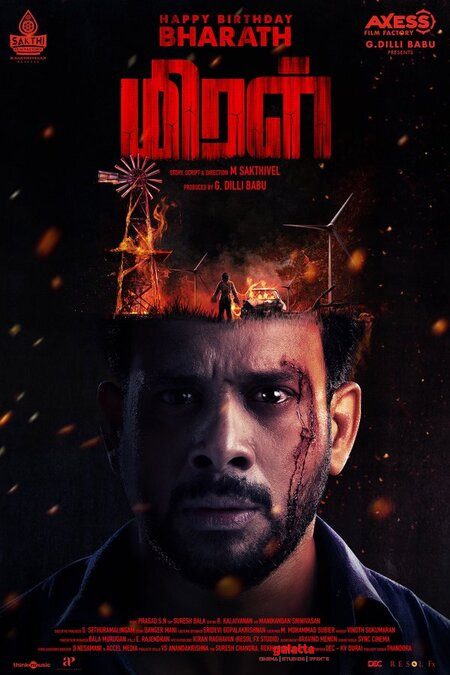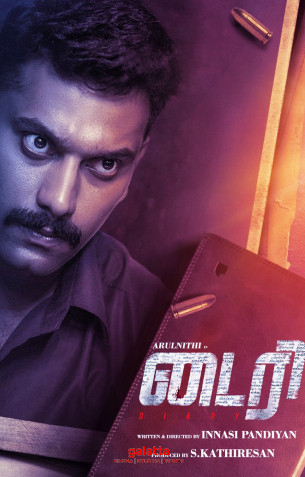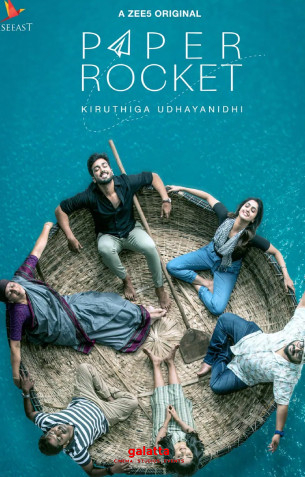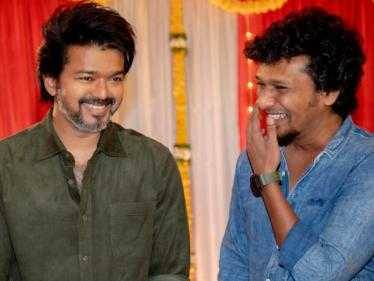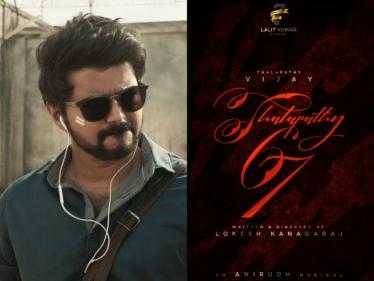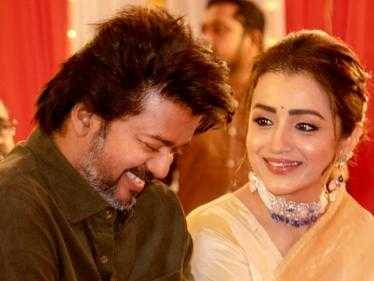Nanpakal Nerathu Mayakkam Movie Cast & Crew
The "hero entry shot" of Mammootty in Lijo Jose Pellissery's magical new movie, Nanpakal Nerathu Mayakkam, occurs not when he enters the frame (and the movie) – but when he is already locked in a frame. Theni Eashwar is the brilliant cinematographer, and he films the events in a series of static master-shots, turning the screen into the kind of "fixed" stage where theatre is performed. It's a cliché by now to quote Shakespeare and say all the world's a stage, the men and women merely players. But Lijo (working from his story, developed by S Hareesh) really makes us feel we are all part of a cosmic/divine plan. We are all locked into playing predetermined parts, over which we have no control. The static frames seem to mirror a static way of life, where everything is preordained, and there is no free will – and therefore, anything and everything can happen.
The Mammootty character – like Shakespeare said – is a "player", a theatre actor named James, and he has come with a bunch of people to Velankanni, one of our holiest centres for Catholics. The opening images of the film are filled with tonsured heads and religious trinkets. The seeds for the screenplay's miracle are already being sown. And they begin to sprout when a sleepy James pays for the rooms the group occupied. (The rest of them are waiting in a bus outside.) While settling the bill, James sees a picture of Thiruvalluvar and one of the poet's verses (kural): To sleep is to die, to wake up is birth. He doesn't think much about it. He steps out and and boards the bus. And then, we get one of the many startling aspects of this startling film: the song Irukkum idathai vittu, from the Sivaji Ganesan-starrer, Thiruvarutchelvar.
Why is this startling? Because the first few lines of the song offer a kind of bite-sized philosophy, like that kural did: Oh foolish man, you leave the place you live in, and go in search of someplace that's not really there. It's a hint of the story/journey that lies ahead. It's also startling that the song is from a religious film, a Hindu epic playing in a bus carrying a load of Christian passengers from Velankanni. It's also startling that these mini-philosophies that will gradually build into this Malayalam movie's "story" are from Tamil poets and Tamil films. Other aptly positioned songs that offer similar commentary to the goings-on on screen are famous Kannadasan musings like Veedu varai uravu, veedhi vaarai manaivi and Mayakkama kalakkama, manadhile kuzhappama! Soon, in the middle of a field, the bus stops. It's noon – the nanpakal of the title – and all passengers are fast asleep, as though a spell has been cast on them, as though they are in a magical slumber in a Gabriel Garcia Marquez novel. Only James is awake. He steps out of the bus and starts walking, and the film turns into a waking dream.
James walks into a Tamil-speaking village and turns into a Tamilian named Sundaram. He moves around as though he knows the place, as though he knows the cow he feeds hay to, as though he knows the clothesline from which he picks a lungi and slips into, as though he knows the blind woman inside a house, and as though he knows the younger woman sleeping alone on a cot in an inner room. This woman wakes up startled when James/Sundaram utters her name, and when he makes observations about food and groceries in the kitchen. Just who is this man? It is the question on our lips, too. Whatever's going on… is it surreal, something dreamlike reflecting the film's sleepy title? Or is it more? After all, one of the last songs we heard on the bus was TM Soundararajan belting out Iraivan irukkindrana, from the film Avan Pithana? Is James's entry the answer to the question the song asks: Is there a god?
And is the answer a "yes"? Because the man of the house has gone missing, and the other inhabitants have been praying for his return. The man is Sundaram, and he looks just like James. And thus, is James's arrival a miracle, or proof that god exists? At one point, someone actually puts this thought in words: "Kadavule paathu avana un veetukku anupchu vechirukaaru". (Oddly, the doubling occurs outside the film, too. The actresses playing the wives of James and Sundaram are both named Ramya.) Belief is essentially blind faith, and that's perhaps why only the blind old woman unquestioningly accepts James as Sundaram and strokes his head lovingly when he lies on her lap. In one remarkable shot, the camera gives us the Tamil family from inside the Tamil-speaking house, and framed through the doorway in the distance, we see James's wife and son, who have come searching for him. Again, it's such a "locked-in" composition, an indication of the prescribed parts we play in this stage called "all the world".
What is the timeframe of this film? After all, we hear Chinna chinna aasai coming from a radio or TV set. But I think the only "timings" that matter are from that kural: the time you go to sleep, and the time you wake up. Each time you sleep, you are reborn as a new person. Or maybe an older person – not in age, but in the sense that this person has already occupied the world's stage earlier. In this sense, I was reminded of Michelangelo Antonioni's The Passenger and Daniel Vigne's The Return of Martin Guerre, where Jack Nicholson and Gérard Depardieu play people who resemble or assume the identity of others, leaving those around them confused. If one Mammootty is not much of a believer, the other one prostrates before a temple. If one Mammootty snaps at his wife and son and Tamil food and Tamil songs, the other one is the very milk of human kindness and care. Who? What? How? Why?
If I got a chance to meet Lijo, I would ask him how many Tamil films he has seen. There is an MR Radha starrer called Ulagam Sirikkiradhu, which has a famous comedy bit revolving around the word "saamiyaaru", which means saint. The MR Radha character splits this word into "saami yaaru," as in "who is God?" And guess what! That film, too, has a Malayali theatre actor playing a Tamil role. Is this an utter coincidence? But it is a reminder that play-acting is all around us, whether in a 1950s Tamil film or in a new Lijo Jose Pellissery movie starring Mammootty as James who play-acts as Sundaram - either unconsciously or because of an act of God or because he's been possessed by the spirit of Sundaram, or whatever. Maybe the only way to snap out of this is to stare hard into reality, the way Mammootty stares into a mirror. It's a stunning scene, rendered by a stunning actor.
Mammootty uses his life's acting experience to play James and Sundaram. He is, of course, too great an actor and he's played too many great roles to say something as reductive as "this is his best" – but when was the last time you saw a star-actor tossing away his stardom and playing two very ordinary men who speak two very different languages? Only in one very funny scene do we see some overt "acting", when a bit from Gouravam plays on a TV in a local bar, and James/Sundaram acts out both the Sivaji Ganesan roles from that movie just like he's playing a double role in the Lijo film we are watching. For the only time in the movie, the lighting turns theatrical: one half of the screen is red, the other half green. Even the "stage" seems split in two.
The rest of the "players" sit around wondering what to do. Sundaram's people are torn between accepting that a man who went missing is back and wondering if he is a thief. James's people are equally confused by a man who went "missing" from their bus, and entered this strange village, with strangely uniform blue-coloured homes. Only a dog seems sure that this is indeed Sundaram, and it does not matter that his master now occupies a new form called James. In the final passages of the Mahabharata, the dog is the faithful companion that Yudhishtira refuses to abandon, even after losing his wife and brothers. The dog happens to be Yama, the god of death. And we return to the kural. To sleep is to die. But to watch, to experience a film like this – at once muddled and filled with clarity – is to feel transcendentally alive.


